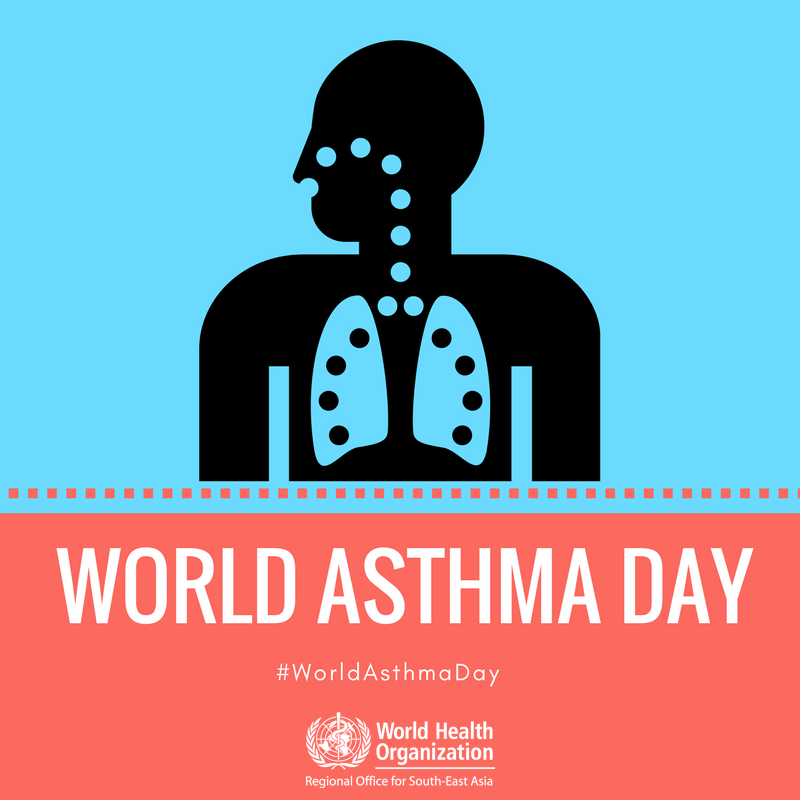Key facts
- Asthma is one of the major noncommunicable diseases. It is a chronic disease of the the air passages of the lungs which inflames and narrows them.
- Some 235 million people currently suffer from asthma. It is a common disease among children.
- Most asthma-related deaths occur in low- and lower-middle income countries.
- According to the latest WHO estimates, released in December 2016, there were 383 000 deaths due to asthma in 2015.
- The strongest risk factors for developing asthma are inhaled substances and particles that may provoke allergic reactions or irritate the airways.
- Medication can control asthma. Avoiding asthma triggers can also reduce the severity of asthma.
- Appropriate management of asthma can enable people to enjoy a good quality of life.
- indoor allergens (for example, house dust mites in bedding, carpets and stuffed furniture, pollution and pet dander)
- outdoor allergens (such as pollens and moulds)
- tobacco smoke
- chemical irritants in the workplace
- air pollution.




